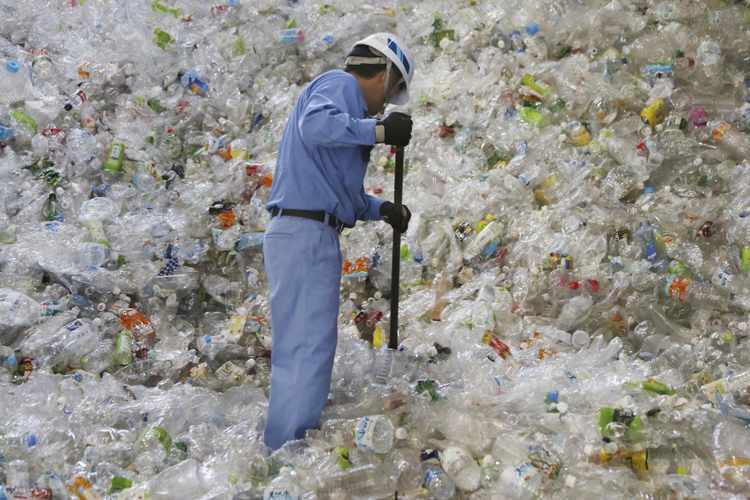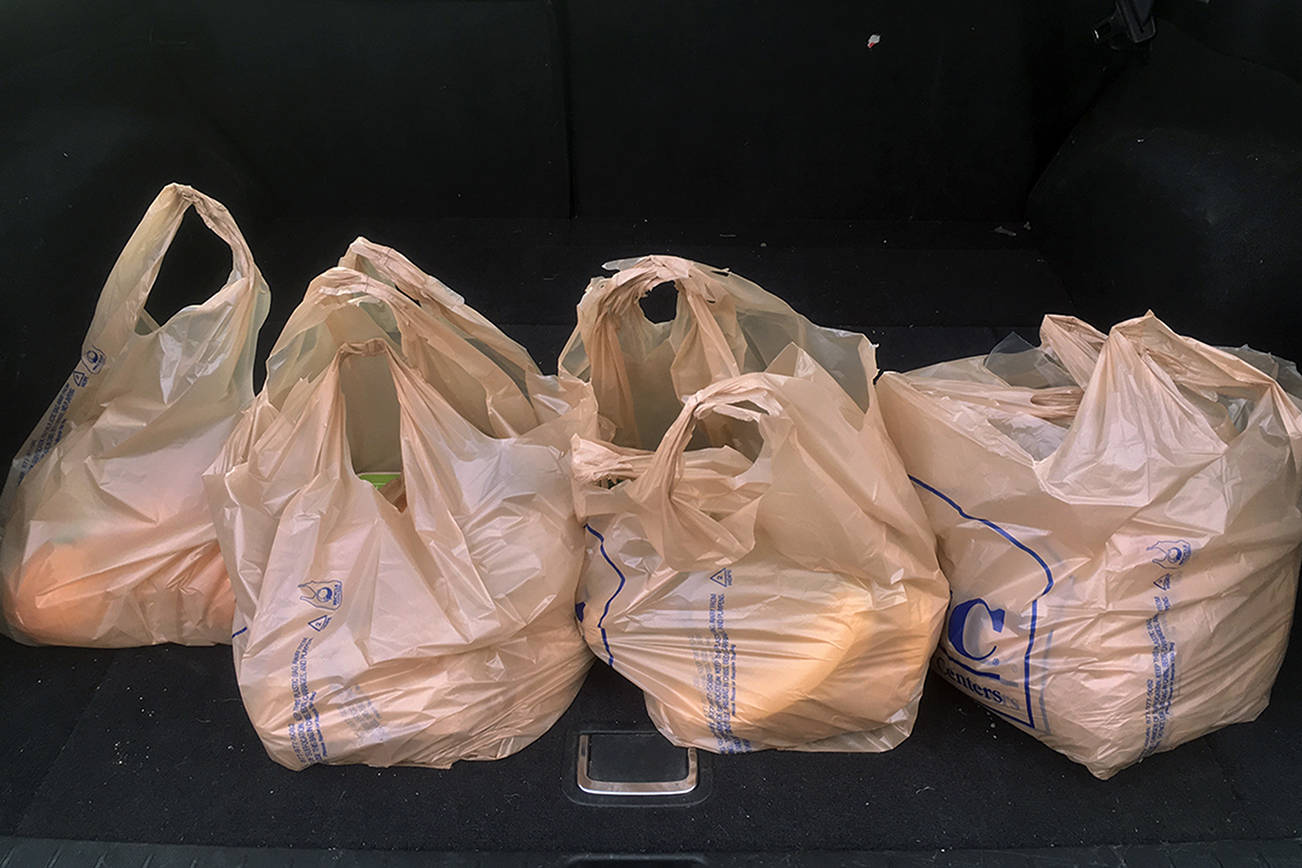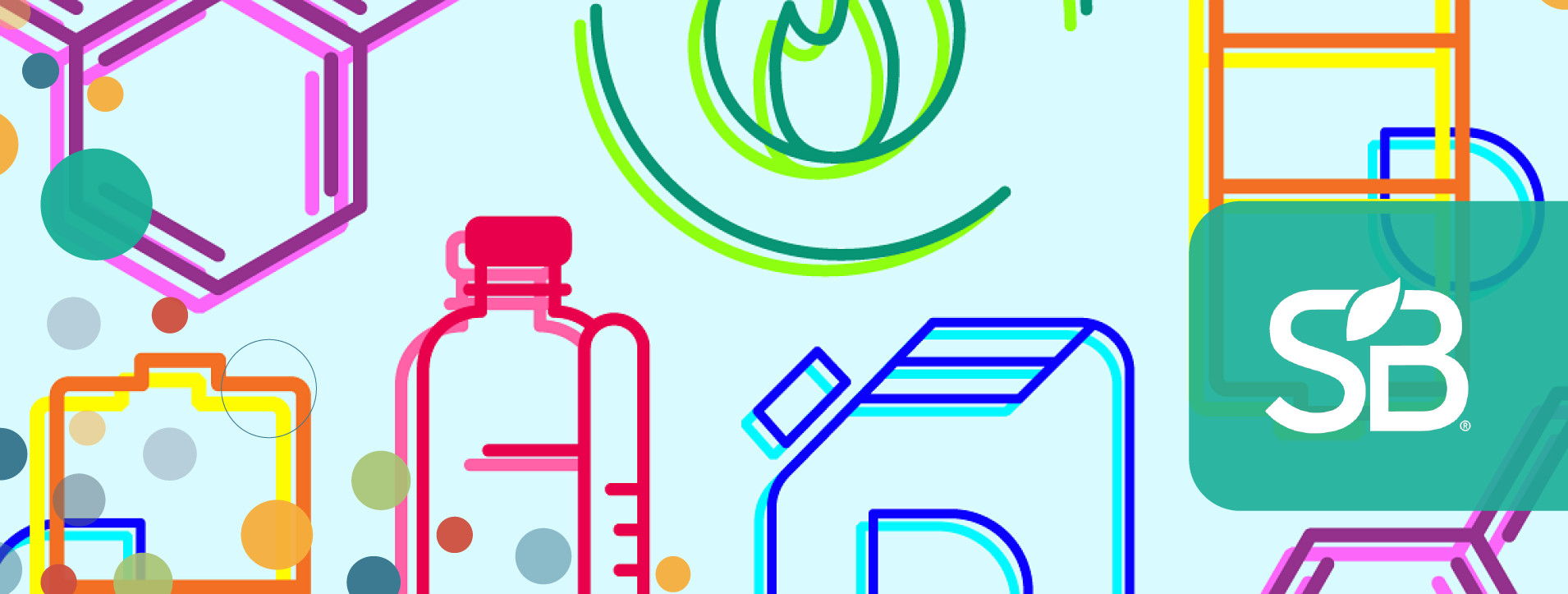And this report just in from USGS in the Rockies. It's in the air there too. I think we can assume it's everywhere.
https://pubs.usgs.gov/of/2019/1048/ofr20191048.pdf
https://pubs.usgs.gov/of/2019/1048/ofr20191048.pdf

Never thought about that.some of the worst offenses are the massive amounts of plastics used for ground cover in agriculture. These break down after a season or so into millions of pieces that are then washed down rivers or windblown. And that is just one example.
I have been wondering about what farmers do with the poly sheeting for hoop houses and stuff like that. The poly usually starts to disintegrate after a season or two.Kind of a harmful article and only partially true. I have been doing a deep dive into plastics recycling in our region. I have spoken with plastics manufacturers, responsible recycling management companies and will soon be speaking with Waste Management, the largest landfill and waste handler in the country. The path of recycled plastics is more complicated right now and in transition. But there are North American markets, especially for #1 & 2 plastics. They definitely shouldn't be landfilled and done right, they can be profitable. Other plastics like styrofoam are also very recyclable. The main issue is transportation costs. What the article also doesn't mention is that there are new pipelines and chemical refining solutions that are now either coming online or being built. It takes time for this infrastructure to get in place, but there are solutions. Also, China is cleaning up in some areas, but some of the worst offenses are the massive amounts of plastics used for ground cover in agriculture. These break down after a season or so into millions of pieces that are then washed down rivers or windblown. And that is just one example.
You won’t be surprised that when this forum first made me aware of the micro plastics problem, my first and second thoughts were the large rolls of plastic I’d been using to cover my own wood stacks, and then that extended to the similar rolls farmers use today for weed control.....some of the worst offenses are the massive amounts of plastics used for ground cover in agriculture. These break down after a season or so into millions of pieces that are then washed down rivers or windblown. And that is just one example.
![[Hearth.com] Killing our planet with plastics [Hearth.com] Killing our planet with plastics](https://www.hearth.com/talk/data/attachments/254/254208-3891c64aebe0a1c10a0a75537c25ff62.jpg?hash=UM0aJKZ1YF)
The chemical refining process has been designed and built in the US by Eastman Chemical. It breaks almost all plastics down to their constituent parts so that new virgin plastics can be made from them. This is important because it means that most plastics will become truly recyclable, not just downcyclable.You won’t be surprised that when this forum first made me aware of the micro plastics problem, my first and second thoughts were the large rolls of plastic I’d been using to cover my own wood stacks, and then that extended to the similar rolls farmers use today for weed control.
I found a way to eliminate my own small contribution, but I fear the chemical solution they’ll find to eliminate theirs.
Yes, many plastics last almost forever when they are not exposed to sunlight. The sad thing is that these bags, like many products today (wood pellets, bird seed, pet supplies, etc.) are still being packaged in virgin plastics. The issue is value. Due to the fracking boom it has become a little bit cheaper to make plastics from fossil fuels than to recycle them. It wouldn't take much to reverse the balance. It is a consequence of oil and gas subsidies, in the US and abroad.When this thread comes up, I think about these. Last year we were cleaning out a fence row of brush and trees, and came across a pile of buried fertilizer bags. Used when planting, discarded at the end of the field. The last time bags like these were used on the farm was 1968.
It's an environmental mess, to put it in the most kind words. Plastic production for agricultural mulch was expected to see a 69% increase to 7.4 million tons by 2019.I have been wondering about what farmers do with the poly sheeting for hoop houses and stuff like that. The poly usually starts to disintegrate after a season or two.
I see this situation getting a lot worse before it gets any better. One trigger to a turn around may be certain seafood a species designated unfit for human consumption due to microplastic contamination. That may be the wake up call. Species such as oysters that filter water for food would be at high risk if they are not already.It's an environmental mess, to put it in the most kind words. Plastic production for agricultural mulch was expected to see a 69% increase to 7.4 million tons by 2019.
Not uncommon in some areas. It's why better solutions are needed and why Eastman's approach may make true plastics recycling more viable.Most of my plastic always went to the landfill as its not in the form of recylable bottles which is all they take. Its food and consumer goods packaging and amazon plastic bubbles. We dont use bottled water.



global problem. It's going to take large global solutions to address it.
The same way Newfoundland put a moratorium on fishing. It's not like we are talking about black market organ sales or drugs. You need complex machinery and chemists to make plastics. If all nations ban the import and production of plastics (not going to happen, but an example) then no legal companies will be producing plastic.There's that word again. How would this global agreement be enforced? What would your solution be for the countries that refuse or come to the table in agreement and then do nothing? Should the US be the global policeman for the agreement? I would hope not...
If all nations ban the import and production of plastics
Except it did work in Newfoundland, that's why I referenced it. If all nations agree not to import certain items, then it falls to the black market. Plastics are easy to enforce because there aren't any clandestine plastic factories for the black market to produce plastic. The policy will enforce itself in this case. It's not like you can just pull plastic out of the ground, you must have chemists and lots of equipment. Crude oil is a substance that could possibly be smuggled, but it would be quite difficult I imagine. There already exists a system to prevent illegal smuggling. Again, we aren't trying to eliminate all plastic full stop, just the stuff that is destroying the planet.My question was how would you enforce that on the global level that was suggested?
Overfishing is hardly a good example, many countries ignore and over-fish areas they control.
Except it did work in Newfoundland, that's why I referenced it. If all nations agree not to import certain items, then it falls to the black market.
Same here. Maybe this is naive of me, but I just stick it all in the recycling bin. If it's clear polyethelene, the same material as the plastic bottles, I figure they'd best recycle it. That goes for the miles of clear heavy weight polyethylene plastic I used for covering my prior wood stacks. In fact, I have taken to just putting nearly all packaging material of all types in the recycling bin, and letting them sort it out. If I'm wrong, then I hope that getting enough of something they don't currently process will be instigation to consider it in the future, to minimize the cost of transporting it out of the recycling facility.Most of my plastic always went to the landfill as its not in the form of recylable bottles which is all they take. Its food and consumer goods packaging and amazon plastic bubbles. We dont use bottled water.
Good luck with that. A more realistic goal would be to have folks favor products with less wasteful packaging, like buying your SuperCedars un-wrapped, versus the individually-wrapped standard. With consumer education, packaging can just be one more factor in the purchase decision. Asking people to consume less is not only futile, but wishing for reduced consumption of goods is wishing for another recession.Ultimately the best thing we can do to help is to consume less and insist on better methods for true recycling of plastics.
They won't, but the goals are good. Large corporations have demonstrated a long history of setting such goals, and making eventual progress toward them, but nearly always coming up short of the hopeful timeline. It's good that they're setting goals, though.Some major companies like Coke and Unilever are making large long-term commitments toward reducing plastic waste. Let's hope they stick to their promises.
Really??? You need to talk with Sawset.It's not like you can just pull plastic out of the ground, you must have chemists and lots of equipment...

Last year we were cleaning out a fence row of brush and trees, and came across a pile of buried fertilizer bags. Used when planting, discarded at the end of the field. The last time bags like these were used on the farm was 1968.
Bad procedure, aka wish-cycling. It gums up the works, adds costs to all of us. Follow the rules for your system. If too many people abuse the system it will shut down. Ask if your facility is set up to deal with the sheeting. Most are not. Introducing it to the system can cause hours of shutdown to clean out the sheet plastic. Visit your facility manager and ask how their system works.Same here. Maybe this is naive of me, but I just stick it all in the recycling bin. If it's clear polyethelene, the same material as the plastic bottles, I figure they'd best recycle it. That goes for the miles of clear heavy weight polyethylene plastic I used for covering my prior wood stacks. In fact, I have taken to just putting nearly all packaging material of all types in the recycling bin, and letting them sort it out. If I'm wrong, then I hope that getting enough of something they don't currently process will be instigation to consider it in the future, to minimize the cost of transporting it out of the recycling facility.
Truth is, some have. Unilever is making some good progress. The pressures in Europe, for example, are higher than here.They won't, but the goals are good. Large corporations have demonstrated a long history of setting such goals, and making eventual progress toward them, but nearly always coming up short of the hopeful timeline. It's good that they're setting goals, though.
Actually, this is happening. Our consumption is not sustainable and wealth disparity grows. As long as costs keep rising for healthcare, real estate, etc. and real wages are stagnant, the consumer is going to spend less or get deeper in debt, which is another problem.Good luck with that. A more realistic goal would be to have folks favor products with less wasteful packaging, like buying your SuperCedars un-wrapped, versus the individually-wrapped standard. With consumer education, packaging can just be one more factor in the purchase decision. Asking people to consume less is not only futile, but wishing for reduced consumption of goods is wishing for another recession.
I saved that photo! My wife couldn't believe how nice that bag looked after decades. Especially after reading about failed buried "time capsules".Same here. Maybe this is naive of me, but I just stick it all in the recycling bin. If it's clear polyethelene, the same material as the plastic bottles, I figure they'd best recycle it. That goes for the miles of clear heavy weight polyethylene plastic I used for covering my prior wood stacks. In fact, I have taken to just putting nearly all packaging material of all types in the recycling bin, and letting them sort it out. If I'm wrong, then I hope that getting enough of something they don't currently process will be instigation to consider it in the future, to minimize the cost of transporting it out of the recycling facility.
Good luck with that. A more realistic goal would be to have folks favor products with less wasteful packaging, like buying your SuperCedars un-wrapped, versus the individually-wrapped standard. With consumer education, packaging can just be one more factor in the purchase decision. Asking people to consume less is not only futile, but wishing for reduced consumption of goods is wishing for another recession.
They won't, but the goals are good. Large corporations have demonstrated a long history of setting such goals, and making eventual progress toward them, but nearly always coming up short of the hopeful timeline. It's good that they're setting goals, though.
Really??? You need to talk with Sawset.
I saved that photo! My wife couldn't believe how nice that bag looked after decades. Especially after reading about failed buried "time capsules".
I've heard/seen a lot of derisive talk about how to enforce environmental protection laws, but maybe we do need some kind of Earth Police. The lobster fishermen laughed and pretty much said there's no way they will obey the restricted fishing areas set out to protect Right Wales since there's no enforcement or any way to see where the lobster were caught. I bet there would be a lot more respect for the earth if there were a real police force. After hearing some crew members talk about how they use drag nets to get the shellfish out of the shallow tidal waters I would be the first in line if my region formed an environmental police force. I would love nothing more than adding some extra ventilation to these destructive fishing boats from a long distance!
You nailed me, there. It is “wish-cycling”. But I never saw it as a bad thing. Like I said, maybe naive.Bad procedure, aka wish-cycling. It gums up the works, adds costs to all of us.
That’s the trouble. When recycling started in our area 30 years ago, the trash hauler used to leave a yearly flyer on our can outlining what could and couldn’t be recycled. It would expand a little, over the years. However, it’s been 20 years since I’ve received one of those, and I really have no idea what’s allowed or dis-allowed today.Follow the rules for your system. If too many people abuse the system it will shut down.
Yeah... that’s not gonna happen. Maybe you have all the free time to fart around with crap like this, but I do not. Like most folks, I’m at work when such a facility would be open and the manager accessible. I barely find enough time during my few weekend daylight hours to keep ahead of my wood harvesting and splitting. I was outside 30 minutes before sunrise this morning, measuring out the foundation for another wood rack, and hauling out the trailer to go fetch the next round of material. Other than lunch (now), I won’t sit down until an hour or three past dark, tonight.Ask if your facility is set up to deal with the sheeting.... Visit your facility manager and ask how their system works.
We use essential cookies to make this site work, and optional cookies to enhance your experience.

